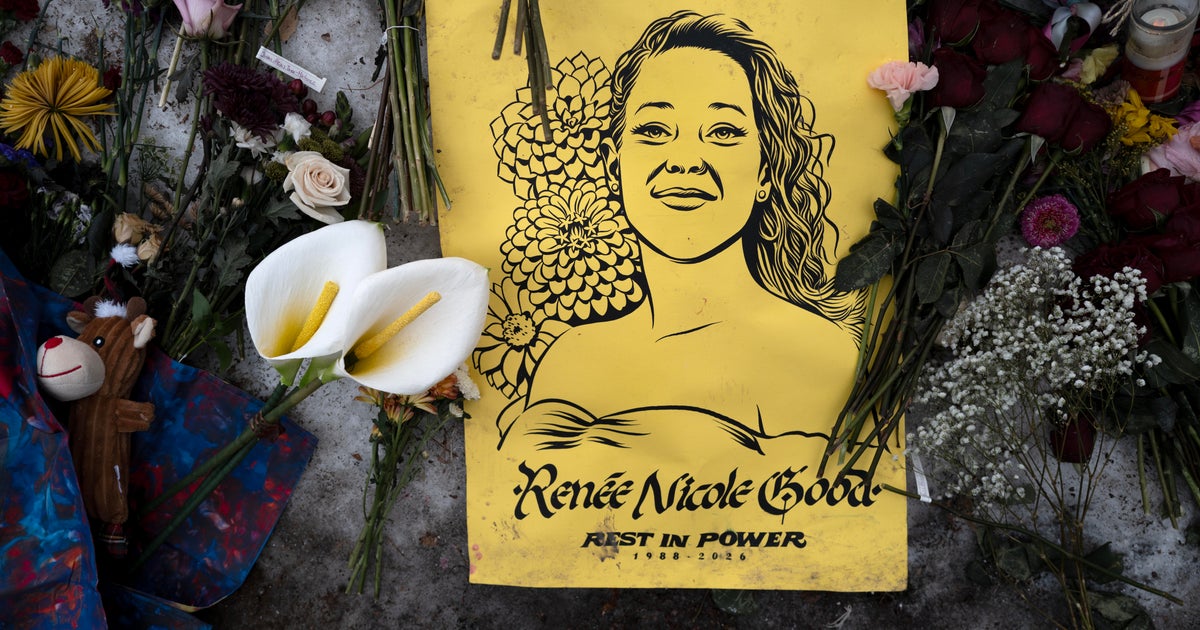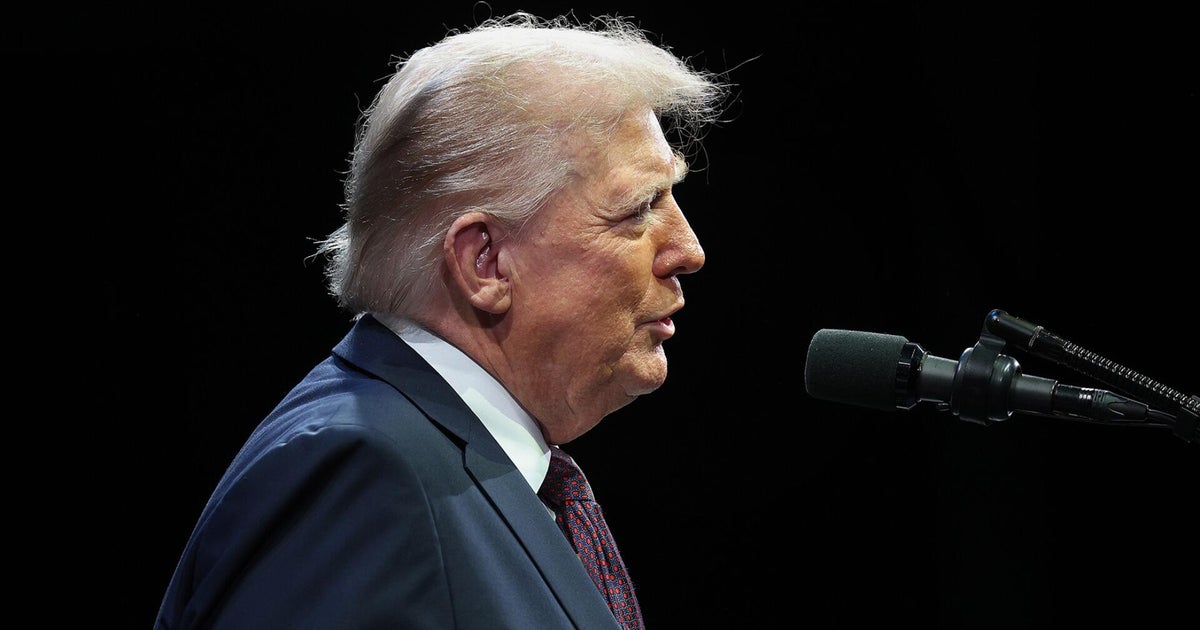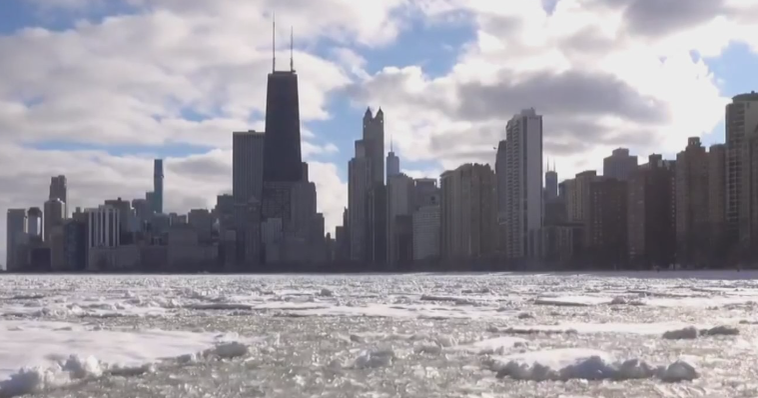Bruising Gay-Marriage Showdowns In MN, Other States
(AP) -- Foes and supporters of same-sex marriage are gearing up for five costly and bruising statewide showdowns in the coming months on an issue that evenly divides Americans.
It's an election year subplot sure to stir up heated emotions — even beyond the confines of North Carolina, Minnesota, Maryland, Maine and Washington state. National advocacy groups will be deeply engaged, and advertising is likely to surface from each side that outrages the other.
"It's crunch time," said Brian Brown of the National Organization for Marriage, the paramount fundraiser for opponents of gay marriage. "We view it as a massive opportunity for a national referendum."
Brown predicts same-sex marriage will be rebuffed in all five states, while gay-marriage supporters hope they can score at least a few victories and break a long losing streak. Since 1998, 31 states have had ballot measures related to same-sex marriage, and in every state the opponents ended up prevailing.
However, the most recent vote was in 2009. Gay-rights activists believe public opinion is moving inexorably in their direction, citing both national polls and policy developments such as repeal of the ban on gays serving openly in the military.
"The events of past few years are bringing new energy and vigor to our side that allows our messaging to constantly evolve," said Fred Sainz of the Human Rights Campaign, a national gay-rights group. "The other side has remained very stale and stagnant."
A look at the states likely to vote on marriage this year:
—In North Carolina on its May 8 primary day and in Minnesota on Election Day in November, voters will weigh in on constitutional amendments placed on the ballot by Republican-controlled legislatures that would ban gay marriage. Neither state allows same-sex marriage now, but supporters say the amendments — similar to those approved in 29 other states — would prevent courts from empowering same-sex couples to wed in the future.
—In Maine, gay-marriage supporters have placed a bill on the Nov. 6 ballot to legalize same-sex marriage. The legislature approved a similar bill in 2009 but it was overturned by 53 percent of the voters in a referendum that fall. The key question is whether voter sentiment has changed enough in three years to reverse the outcome.
—In Maryland and Washington, foes of same-sex marriage are expected to gather enough signatures in the coming weeks to place measures on the Nov. 6 ballot that would overturn recently passed same-sex marriage laws. The laws are strongly backed by Democratic Govs. Martin O'Malley of Maryland and Christine Gregoire of Washington — both Roman Catholics — and strongly opposed by the Catholic hierarchy.
Washington may provide gay-marriage supporters with their best chance of victory. It has the only electorate in the nation that has voted to grant gay couples the same rights as heterosexual married couples — upholding a comprehensive domestic-partnership law in 2009.
"We can't take anything for granted — we have to make the case," said Evan Wolfson, president of the national advocacy group Freedom to Marry. "We believe Washington is a state we can we win."
Freedom to Marry is among numerous national organizations girding for what Wolfson calls "multimillion-dollar slugfests" in the five states. It's launching a "Win More States" fund with a goal of raising $3 million for the campaigns.
Bigger contributions are likely to come from the Human Rights Campaign in support of gay marriage and from the National Organization for Marriage opposing it, although neither group has publicly detailed its spending plans as they ponder how to deploy resources for multiple battlefronts.
"It's going to be a big challenge, but I think we're up to it," said NOM's Brown. "All we need is enough to get our message out."
Sainz said the Human Rights Campaign was encouraged by the zeal of O'Malley and Gregoire.
"These governors have put their heart and soul into these laws, and are serious about defending them at ballot box," he said. "That's a factor the opponents don't have."
The opponents do have the Catholic Church leadership firmly on their side. One example: the Minnesota Catholic Conference has already contributed at least $750,000 for the amendment campaign, with more to come.
"It's Democracy 101," said Jason Adkins, the conference's executive director. "Our clergy has a duty to inform our people about the consequences of redefining marriage."
In Maryland, Maine and Washington, Catholic leaders also have pledged active campaigns.
In two of the most recent defeats of gay marriage, a California-based firm, Schubert Flint Public Affairs, played a key role. In California in 2008, when voters passed Proposition 8 to ban gay marriage, and also in Maine in 2009, the firm's strategists oversaw ad campaigns warning that "homosexual marriage" would be taught in public schools.
Gay-rights backers denounced the ads as inaccurate scare-mongering, but they were widely credited with influencing the outcome of the votes.
Schubert Flint has been signed up to provide tactical advice for the gay-marriage opponents in Minnesota, and a leader of the Maine campaign against gay marriage indicated he's open to doing likewise.
"We'll likely use some of the same people we used before," said the Rev. Bob Emrich, chairman of the Christian Civic League of Maine. "They did a good job last time. They suffered a lot of criticism, but at the end of the day we won."
Brown said the National Organization for Marriage planned to continue with aggressive ads.
"The other side is going to scream ... but this is no time for retreat," he said. "Whatever we do, we've gotten to a point where many on the opposite side resort to calling folks bigots who disagree with them."
Sainz contends that gay-marriage supporters will be more adept this year in countering opponents' ads.
"With every passing day, their arsenal of dirty tricks is more tired and predictable," he said.
Maine, Washington and Maryland all could make history by affirming same-sex marriage via popular vote. In the jurisdictions that now allow gay marriage — Massachusetts, Vermont, Connecticut, New Hampshire, New York, Iowa and the District of Columbia — it resulted from court rulings or legislation.
Barack Obama won Maine, Washington, Maryland and Minnesota in 2008, and gay-rights forces hope that high turnout by voters seeking to re-elect him might help the same-sex marriage cause.
In Maryland, however, there's a possibility that numerous black voters — even if they back Obama — might vote against same-sex marriage. A recent Washington Post poll found that among Democrats in Maryland, 71 percent of whites supported gay marriage compared to 41 percent of blacks.
Obama, while supportive of gay rights, says he is still "evolving" in regard to gay marriage, and it's unclear to what extent he might speak out on the ballot measures. Meanwhile, gay-rights groups are urging the Democratic National Committee to contribute funds to the state campaigns.
In Washington state, the measure to quash same-sex marriage would share the ballot with a proposal to legalize recreational use of marijuana — a combination which gay-marriage opponent Joseph Backholm hopes will aid his side.
"Having those two things together there — I think it will give people some pause," said Backholm, director of the Family Policy Institute of Washington.
However, he acknowledged the possibility that Washington voters could break the 31-state streak on gay-marriage measures.
"Nobody wants to be the first to lose," he said. "But that's a reality that people in Washington state are thinking about."
(© Copyright 2012 The Associated Press. All Rights Reserved. This material may not be published, broadcast, rewritten or redistributed.)







